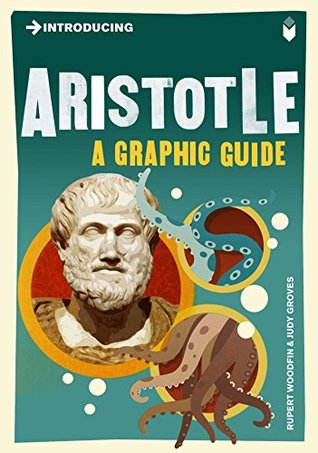More on this book
Kindle Notes & Highlights
The central thrust of the writings is that the world exists as it seems to exist, and can be understood by ordinary people with the right abilities and training.
it. Aristotle wanted to find a middle way, avoiding both mysticism and reductionism.
Aristotle also realized that we would need to make a careful distinction between a description of something and its definition.
species. In Books Theta and Eta, he takes yet another position. Here he argues that the important distinction in metaphysics is between the potential and the actual.
Aristotle’s logic wants to show two things: first, that levels of being are linked by necessity – there is a guarantee of no alternative to the conclusion drawn; second, that our rational nature can recognize this necessity.
Induction and deduction can be seen together as demonstration.
Aristotle also describes another method of argument, the dialectic, in The Topics.
Aristotle called this ability to make progressive jumps up to first principles nous,
Another problem arose from the way that Aristotle made assumptions. These were probably common sense in Athens at the time but were unwarranted. For example, he assumes that right is better than left, upper better than lower and front better than back, and tries to apply this principle to the universe. Thus, the “sublunary” world below the moon is naturally inferior to the world above and beyond the moon.
The paradoxes seem to demonstrate that time and motion cannot exist. They were a major challenge to Aristotle. To counter them, Aristotle had to demonstrate that space was infinitely divisible.
Soul is pure form, the body is matter.
Imagination is the “movement which results upon an actual sensation”. It is the holding up of the image of sensation before the heart (or mind, as we would say), and the retention of the image is, of course, memory.
pleasure is something that perfects an activity.
“we ought, so far as in us lies, to put on immortality, and do all that we can to live in conformity with the highest that is in us.”
Aristotle thought that the only realistic way to control emotions is to train them by practice and habit, to habituate oneself into feeling emotions appropriately. Moral argument does not work. Aristotle doesn’t mean that we should train ourselves not to have emotions at all. They are a normal and natural part of being human.
Our long tradition of “political economy” was originally a matter of “citizens’ family business”. And this was a fundamental unit of social life in Greece.
The point of good laws is to “make good citizens by accustoming them to be good”.
Plato instead did not believe education was enough.
He is the first to ask the question “What is art?”, and to do so with scientific impartiality that lays the foundations of Western aesthetics still valid today.
Imitation depends on thinking and on the resources of language or other physical means to re-produce experience. Art is therefore a representation of our reflection on the sensuous appearance of things.
Dialectics dealt with matters necessarily and always true; rhetoric with matters that are probable – a “logic of probability” related to poetics.
Thomas Hobbes (1588–1679) said: “Scarce anything can be more absurdly said in natural philosophy, than that which is now called Aristotle’s Metaphysics.” The dogmatism of the Aristotelian Schoolmen came near to destroying Aristotle’s work.
The chief accusation made by such 17th-century empiricists was that Aristotle was unscientific. Ironic, if we consider his lifetime project of describing a scientifically comprehensible world.
Kant agrees with Hume that knowledge rests on experience. But he rejects the notion that concepts, such as cause, are only psychological. Kant returns to Aristotle’s ideas of the categories and the distinction between a priori and a posteriori knowledge. A priori knowledge is prior to and does not depend on experience; a posteriori comes after and does rely on it. Kant argues that it is impossible to know anything a priori about the world as it is, independently of our cognitive apparatus.
Kant’s theory is a limited return to Aristotle but does not entirely eliminate scepticism.


